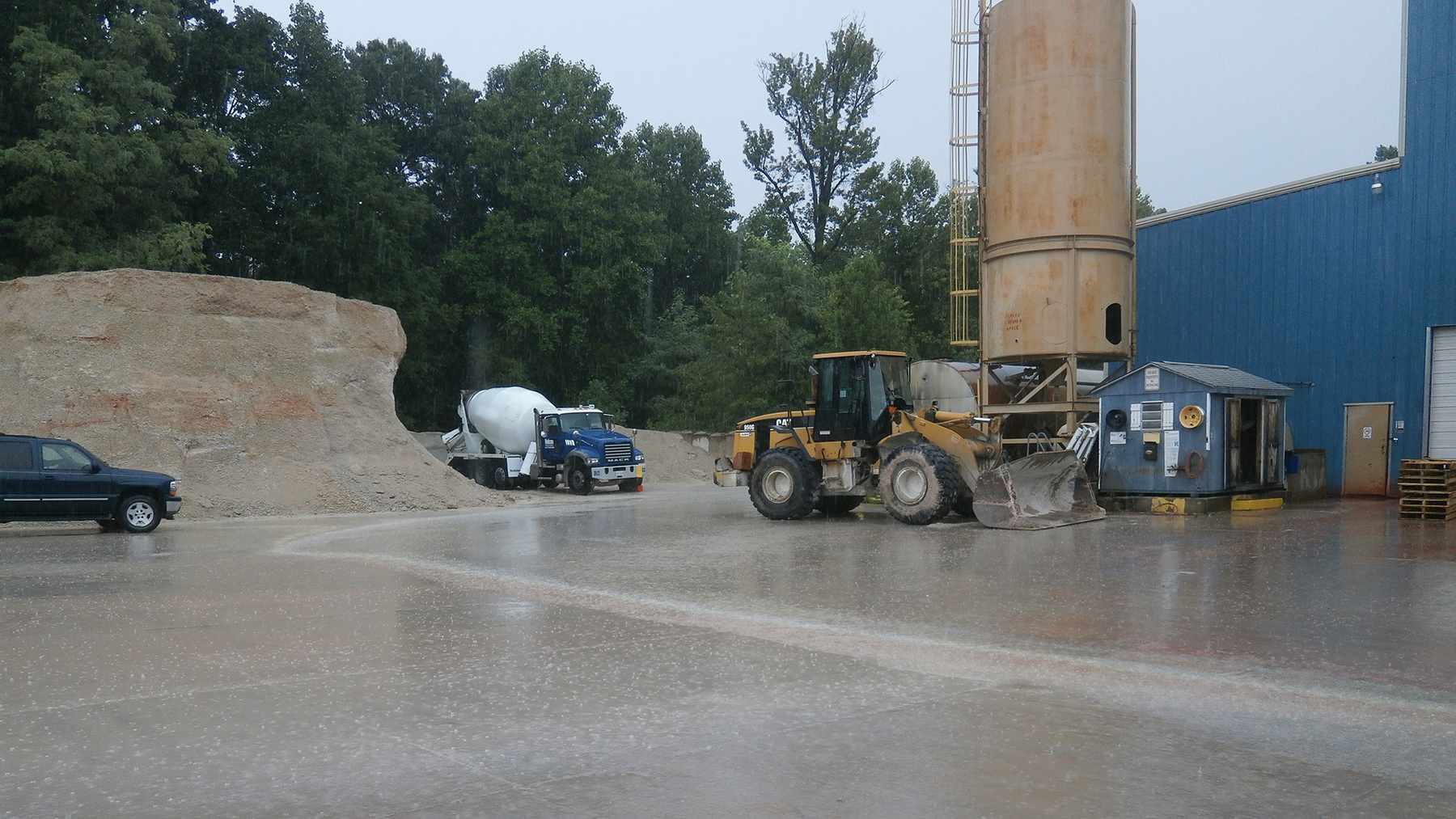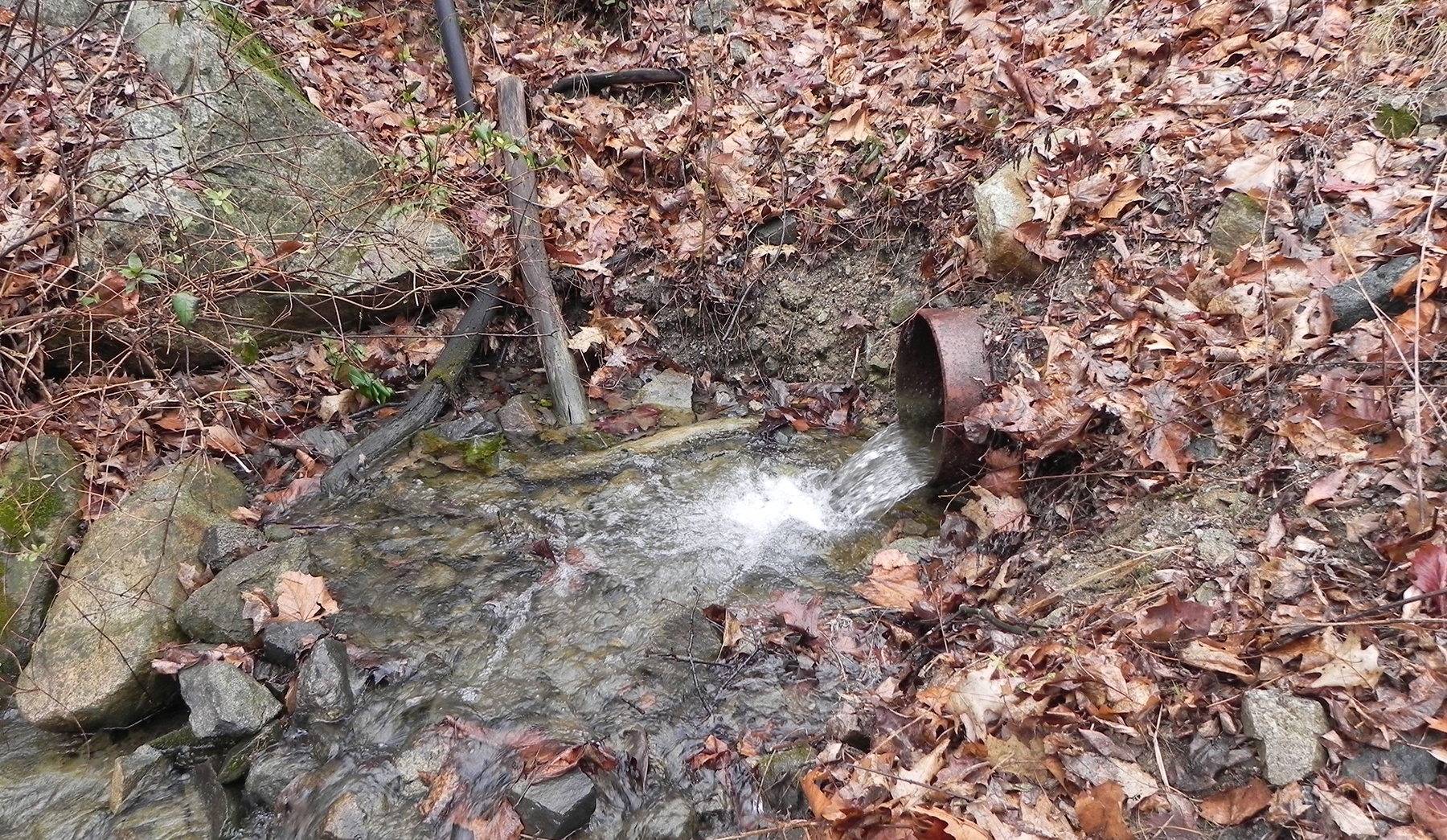Learn the difference between stormwater and process waste water.
When it comes to NPDES permits, whether you're in New Jersey, Florida, Hawaii, you name it, there's a huge difference with regards to stormwater and process water. Most, if not all, NPDES permits have very strict and specific regulations for stormwater and process water.
Most of the facilities we deal with across the US only have an NPDES permit for stormwater discharges, which is why we (and many other environmental professionals) commonly refer to NPDES permits as stormwater permits or NPDES stormwater permits. This is somewhat incorrect since NPDES permits can be for process water discharges as well.
Confused yet? Don't worry, many of the people we educate over the years don't get it at first either, but with a little explanation and some examples, it'll be easy to learn the difference between stormwater and process wastewater.
NPDES Permits - Stormwater vs Process Water
Let's start off with the main reason we're even talking about this - National Pollution Discharge Elimination System Permits, or NPDES Permits for short. We all know what they are right? If not, check out our article what is a stormwater permit for more information on the stormwater side of NPDES permits.
For those of you out there that have an NPDES permit, I’m sure you know it as either a “general permit” or an “MSGP”, but the one we hear folks call it most often is a “stormwater permit”. When talking to our clients, we even refer to it as a stormwater permit from time to time. When it really comes down to it, that’s what these permits are meant for – stormwater – right?!
Yes and no. Make no mistake, there are stormwater permits out there that cover more than just the rain. As we said above, process water is the other side of the coin when it comes to these permits and sometimes people forget that.
Well isn’t water just water? When dealing with these permits, the answer is no. Water is not just water. And since these permits are enforceable and breaking the rules could potentially lead to violations, fees, and fines, and other penalties, it couldn’t be more important to realize and understand the difference of what these types of water are.

What is stormwater?
Stormwater as is any form of precipitation. Rain, snow, hail, sleet, even fog is a form of precipitation (though impossible to sample from). The word has one major clue in it – storm. That should make it easy to remember.
If a storm is coming, any precipitation (or water) that falls from the sky during that storm, is 100% stormwater.
NPDES Permits regulate the rain?
No. They can’t, and they don’t. People often get confused thinking these permits are meant to control the rain. Since people acknowledge that its going to rain and that water is going to fall onto your site, the restrictions are on stormwater discharges at your facility, not the rain itself.
NPDES Permit regulations for stormwater are more forgiving as compared to process water restrictions. This usually means somewhat infrequent sampling, monitoring for a few parameters, and only having to adhere to benchmark limits instead of enforceable effluent limitations. Stormwater is relatively easy to manage. Follow your permit, do what's required, sample as often as you need to, and the rest should fall into place.

What is process water?
Process water is another story. Before I dive in (water pun intended), let me set the stage in saying that process water is constantly called different things, but they all mean the same. You may call it process water, process wastewater, wastewater, wash water, rinse water, you name it. No matter what the name, it’s still process water.
As I said, most people that have NPDES permits often disregard thinking about process water. That’s simply because most of the NPDES permits out there forbid people from discharging it. The government doesn’t want you to discharge these dirty polluted waters and frankly doesn’t really care what you do with it as long as it doesn’t get discharged. You can save it, reuse it, do nothing with it, pay to have it shipped off and dealt with, that's your problem.
Another thing to consider - no matter how much you clean your process water through whatever systems you have in place, it's always going to be process water. There are a lot of fancy water treatment systems that can take dirty process water and make it look like crystal clear drinking water, but the fact remains it's still process water, and there are still restrictions and regulations on discharging process water no matter how clean it looks.
Just like stormwater, there’s a major clue in the name itself. Process water is water that is used during your production process, hence process water. All the other names have formed over time but this water plain and simple is used during your process. It's water you make at some point in your processes.
Your process could be making concrete, washing vehicles or equipment, pressure washing machinery, dry cleaning, mopping the floors, the list goes on. All these processes use water and when you start to think about it, the water leftover (maybe as a waste byproduct – hence wastewater) from these processes are heavily polluted, dirty, and downright dangerous to the environment. It'll contain various pollutants that don't belong in streams, lakes, rivers, bays, municipal sewer systems, etc.
That is why the majority of NPDES permits out there do not allow you to discharge process water. You created it (being process water), now you must figure out what to do with it.

Stormwater + Process Water = Process Water
A lot of people think that diluting your process water (which is generally dirty) with stormwater (which is generally cleaner) will allow you to discharge process water.
No, not true. Make no mistake, once process water is added to stormwater, or vice versa, it becomes commingled water (commingled stormwater, commingled process water, etc.), and commingled water means one thing – process water. Period.
Just to make it even clearer, if you had 1,000 gallons of clean stormwater in a holding basin, and someone poured a 5-gallon bucket of water used during a process (i.e., process water) into that holding basin, you now have 1,005 gallons of process water that you now must deal with.
One important thing to remember, keep stormwater and process water separate as much as possible. If anything mixes with process water, it's still process water, just more of it.
Clean Process Water is STILL PROCESS WATER!
Again as we said above, cleaning your process water, even if you make it crystal clear, completely drinkable, and it's 100% safe and pure, it is still process water and there are still restrictions against discharging it. We come across this a lot with folks selling equipment that cleans water, but at the end of the day, that water is and will remain process water no matter how you treat it.

Can you discharge process water? Check your NPDES permit!
As I said, the majority of NPDES permits DO NOT allow you to discharge process water. However there are a few out there that do, and regulations on doing so are much stricter than stormwater.
What that means is going to depend on your NPDES permit. It may mean increased sampling frequency such as once a month. There may be additional parameters to test and monitor for (and it goes without saying but the more parameters the more expensive the lab fees). Also, it might mean you’re held to effluent limitations instead of benchmark limits. Exceeding effluent limitations, unlike benchmark limits, constitutes a permit violation and could mean trouble.
Understand Process Water vs Stormwater?
Let's go over this one last time.
- Stormwater is water that comes from the sky (precipitation) that lands on your site and discharges from your facility. NPDES permits allow stormwater discharges with relatively minor sampling, monitoring, and inspection requirements.
- Process water is any type of water that you generate at your facility as part (purposely or inadvertently) of your processes. NPDES permits usually don't allow process water discharges, and when they do, the sampling, monitoring, and inspection requirements are pretty strict. Check to see what your state's NPDES permit allows.
- When you combine stormwater and process water, you create commingled water, which is process water. Even adding one gallon of process water to 1,000-gallons of stormwater makes all the water process water. This makes discharging all this water very difficult, or impossible, depending on your state.
- No matter how much you clean up your process water, it's always going to be process water. If it didn't come from the sky and you generated it, it's process water. No matter how clean that water is, there are many states that do not allow you to discharge that process water.
In no way should process water or wastewater or process wastewater be scary, but knowing the differences between that and stormwater, and the ramifications of each, will help you be able to sleep soundly at night, knowing you’re following the rules and regulations in your permit.
To learn more about stormwater, process water, and what your NPDES permit dictates, your best bet would be to contact an expert.
Need help with stormwater permit compliance?
For a lot of folks out there, this is a pain to deal with. After all, you have a business to run! If you're overwhelmed, you're not alone. RMA has been actively involved in helping companies get and stay in compliance with stormwater permits across the United States since our founding in 1992. Long story short, we know the ins and outs of the environmental problems industrial and commercial facilities face and can help you get into compliance with stormwater permits and other applicable environmental laws and regulations, ensuring your business stays out of trouble and in compliance.
Our staff members have been on-site at thousands of operations across the country, so when we say we've seen it all and done it all, we mean it. We've helped everyone, from globe-spanning, multi-national organizations to small "mom & pop" operations. No matter your size or location, we'd love to learn how we can help.
So, if you're having any type of issue at your facility and need the help of an environmental consulting firm with a proven track record, reach out. Even if we can't help, we’ll do our best to steer you in the right direction. Feel free to contact us at info@rmagreen.com, click here to contact us, or give us a call anytime at 888-RMA-0230 to learn how we can help your facility deal with stormwater permits and other environmental regulations.

Additional Stormwater Permit Information















